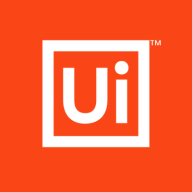

Qt Squish and UiPath Test Cloud compete in the automation testing category. Based on feature capabilities, Qt Squish has the upper hand due to its advanced UI component identification.
Features: Qt Squish offers outstanding UI component identification, integration capabilities with scripting languages, and supports multiple platforms such as Qt. Its IDE is intuitive, and it features powerful object identification, making it ideal for GUI testing. UiPath Test Cloud emphasizes broad automation across business processes, with user-friendly tools for non-developers. It excels in document understanding and technology integration, providing versatility for business environments.
Room for Improvement: Qt Squish could enhance its IDE, object identification, and testing across multiple OS environments. Users face challenges with continuous integration tools such as Jenkins and lack support for certain applications. UiPath Test Cloud requires enhancement in manual test management, integration with third-party tools, and file handling. Simplifying use for non-technical users and more flexible licensing could enhance UiPath's appeal.
Ease of Deployment and Customer Service: Qt Squish is primarily on-premises with strong customer support and prompt issue resolution. Direct access to developers is appreciated. UiPath Test Cloud offers hybrid and cloud deployments, catering to organizations needing infrastructure flexibility. However, support experiences vary, with some users experiencing challenges in obtaining assistance.
Pricing and ROI: Qt Squish is seen as expensive, with its licensing models being burdensome for multi-platform projects. Despite this, it offers satisfactory ROI through reduced manual testing time. UiPath Test Cloud is also pricey, potentially prohibitive for smaller companies, yet its comprehensive features justify the cost for many. Its pricing model is less flexible but offers efficiency in development and maintenance.
For the part that has been automated in Qt, not everything is suitable for automation.
Support should be free, especially for product-related issues.
With one license, just one user or one test scenario can be run at a time.
Proper knowledge of Orchestrator and CI/CD processes makes the product truly scalable.
UiPath Test Suite has matured over the years and is now quite stable.
If you want to run it for different versions of the software, then you need the Qt version of Java.
UiPath should introduce compatibility so existing processes in Selenium or other tools can work seamlessly with UiPath Test automation.
For the developer license, it is about $5200 a year.
The pricing of UiPath tends to be on the higher side, which can restrict smaller companies from adopting it.
For the parts that have been automated in Qt, not everything is suitable for automation.
What I really like about UiPath Test Suite is its ability to ensure that any changes made do not affect other functionalities.


Take the complexity out of testing graphical user interfaces (GUIs) and human-machine interfaces (HMIs) – even in the face of product evolution and safety-critical applications.
UiPath Test Cloud revolutionizes testing through advanced AI agents, enhancing productivity in software assessment.
UiPath Test Cloud, with its AI-augmented automation, offers testers enterprise-grade capabilities for over 190 technologies. Featuring seamless integration with tools like Orchestrator and CI/CD pipelines, it streamlines testing processes and cuts maintenance costs. While users value its functionalities, the need for enhancements in mobile automation and third-party integration, particularly with Jira, is recognized. Efficient test organization through Test Manager and simplified process management via the cloud are noteworthy. Enhancements in reporting and file management are sought, highlighting areas for development.
What are the key features of UiPath Test Cloud?Organizations across industries utilize UiPath Test Cloud for testing types such as origination, smoke, and web application testing. Common implementations include testing in supply chain management, regression testing, and integrating workflows. Teams find it beneficial for ensuring functionality and efficiency in mobile app testing, enabling cross-platform support for RPA and applications like Oracle and SAP.
We monitor all Test Automation Tools reviews to prevent fraudulent reviews and keep review quality high. We do not post reviews by company employees or direct competitors. We validate each review for authenticity via cross-reference with LinkedIn, and personal follow-up with the reviewer when necessary.